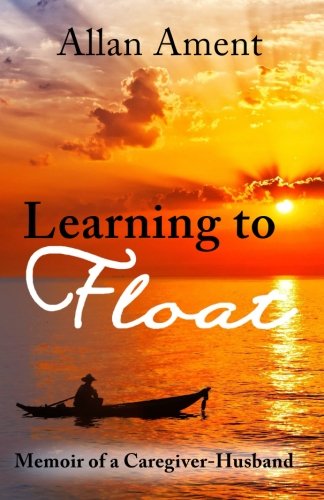It was time
by Allan Ament
It was getting closer each day. Without conscious intent, or desire, I was moving toward it without pause. The proverbial Wall (No – not that wall) and I was about to smack into it.
It was TIME!
Society was beginning to move toward some sense of post-COVID normality. The decision I had put off during the pandemic once again loomed large.
Deloris, my wife for over three decades, suffered a stroke in 2005. Since then, I have been her primary, and often sole, caregiver, a role I assumed willingly and to which I recommitted each day. It was and is an act of love and, in the best of times, a step on the spiritual path. Until recently, I had avoided many stress-related health issues which afflict many family caregivers. That situation changed last year when I was hospitalized overnight on two occasions.
The experience made me realize that I did not want to spend however much time I have left being a caregiver. While I was not yet at the point of feeling resentment, I found myself increasingly approaching caregiving as a duty, as a weight around my body, dragging me down, limiting my options. I needed to put my own needs first or I would not be able to stay afloat and care for Deloris (see, Guideline for Floating, No. 1, in my book, Learning to Float).
As her residual vascular dementia progresses, Deloris spends increasing time in her own reality. She is not going to get better, regardless of my actions or desires. I know that. At best, her situation will remain at this level for a while, followed by a continued lessening of her mental faculties and quality of life.
About eighteen months ago, not wanting to have to make decisions under pressure, I researched nearby memory care facilities. To my surprise and pleasure, I liked a facility in Oak Harbor the best. Then COVID delayed any need I felt to act. Until now. It was time.
No matter how hard it was to accept, I was not living with the woman I had married; rather, I was caring for a shadow of her former self. Not a relationship that was totally satisfactory to either of us. Yet feelings of guilt at “abandoning Deloris” remained, in spite of the assurances I received from family, friends and professionals.
I was not looking forward to telling Deloris. To the extent she could process the information, she would not be happy. I also believed another part of her realized some dramatic change was necessary. Since honesty has been a foundational norm of our relationship, it seemed to be the appropriate approach.
I explained how caregiving stresses were negatively impacting my health. For both our sakes, I needed to do something and outlined the changes I proposed taking. Other than apologizing for causing me discomfort (which I denied), and asking a few logistical questions, she displayed very little reaction.
To make it as familiar, homey, and welcoming as possible, I furnished her well-lit room with her own bed, recliner, bedside table, and lamp. Family photographs provide additional reminders of who she is. We positioned her bed so she can be propped up and watch the birds and flowers out the window, an activity she enjoyed for many waking hours at home.
As I write this, six weeks have passed since the transition. If not entirely comfortable, Deloris seems to have settled in and developed some routine. She says nice things about the staff. I am impressed with the cleanliness of the facility, and especially the compassion and care with which the staff cares for residents. Deloris likes the food, an important factor.
I slowly adapt to my new pseudo-single, living alone, existence. Aside from a few weekly obligations, I am relishing the potential spontaneity coming from not needing to constantly adjust my life to Deloris’s needs and caregivers’ schedules. Per COVID restrictions, I see Deloris every week. I sleep a lot, which, aside from helping me recover from a recent cardiac procedure, I think is one way I am releasing built-up stress. And I am reconnecting with friends. I am creating a welcome and open space in my life so that “what’s next” can appear. To be able to do so seems like an important next step.
What I have not felt is any regrets or second thoughts about the decision. It was time and I avoided hitting The Wall.
After successful careers as a criminal defense attorney, higher education administrator and instructor, and day spa owner, Allan Ament retired to Whidbey Island with his wife Deloris, an award-winning author and journalist. His writing has previously appeared in academic, professional, and literary journals.

